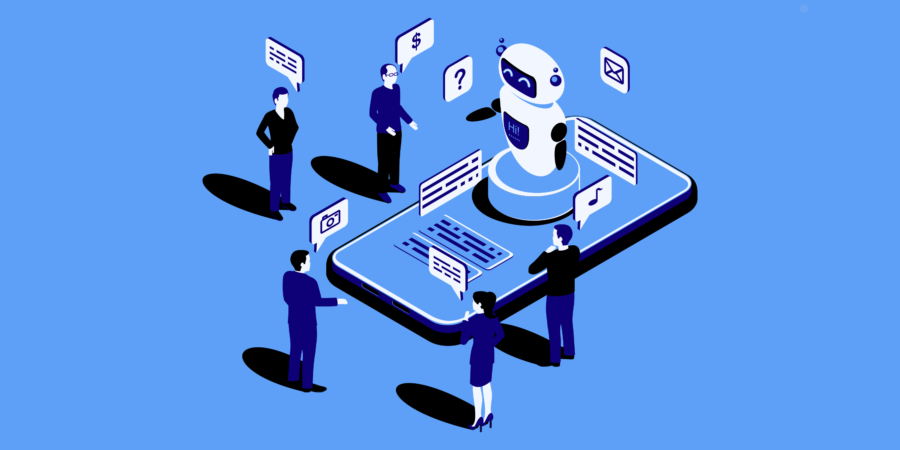Introduction:
In today’s fast-paced digital world, businesses are constantly seeking innovative ways to enhance customer engagement and support. One technology that has revolutionized this landscape is the artificial intelligence-powered evolution of Chatbots. In this blog post, we’ll explore the evolution of chatbots, their applications, and the impact they have on improving customer interactions and satisfaction.
The Evolution of Chatbots:
The evolution of Chatbots has come a long way since their inception. Originally, they were simple rule-based programs that could answer basic questions. However, with advancements in natural language processing and machine learning, modern chatbots are far more sophisticated:
- Natural Language Processing (NLP): NLP technology enables chatbots to understand and respond to human language, making interactions more human-like and context-aware.
- Machine Learning: Chatbots can now learn from their interactions, improving their responses over time and becoming more effective in handling complex queries.
- Multichannel Accessibility: Chatbots are no longer limited to a single platform. They can operate on websites, social media, messaging apps, and more, providing a seamless experience across various channels.
Applications of Chatbots:
- Customer Support: Chatbots offer 24/7 support, answering frequently asked questions and solving common issues. They can escalate complex queries to human agents when necessary.
- E-commerce: Chatbots assist customers with product recommendations, help with the shopping process, and provide order status updates.
- Lead Generation and Sales: Chatbots engage with website visitors, gather leads, and even guide potential customers through the sales funnel.
- Appointment Scheduling: In fields like healthcare and service industries, chatbots can schedule appointments, send reminders, and provide location and contact information.
- Personal Assistants: AI-powered chatbots serve as personal virtual assistants, managing tasks, setting reminders, and offering information on demand.
Benefits of Chatbots:
- Efficiency: Chatbots can handle a large volume of customer queries simultaneously, reducing wait times and increasing efficiency.
- Cost Savings: They can reduce the need for human agents to handle routine tasks, lowering operational costs.
- Consistency: Chatbots provide consistent responses, ensuring a uniform customer experience.
- Data Insights: Chatbots collect valuable customer data, helping businesses understand customer preferences and behavior.
- Availability: Chatbots are available 24/7, catering to customers in different time zones and schedules.
Challenges and Considerations:
- Quality of Interactions: While chatbots have improved, ensuring high-quality, human-like interactions remains a challenge.
- Data Privacy: Collecting and managing customer data should be done responsibly, with a focus on privacy and security.
- Training and Maintenance: Chatbots require ongoing training and maintenance to stay up-to-date and relevant.
- Integration: Seamlessly integrating chatbots into existing systems and workflows can be complex.
Conclusion:
The evolution of Chatbots powered by artificial intelligence has become an essential tool for businesses looking to enhance customer engagement and support. With their ability to provide efficient, round-the-clock assistance and gather valuable customer data, chatbots are helping organizations build stronger customer relationships and improve their overall operations. As this technology continues to evolve, chatbots are poised to play an even more significant role in shaping the future of customer interactions.

